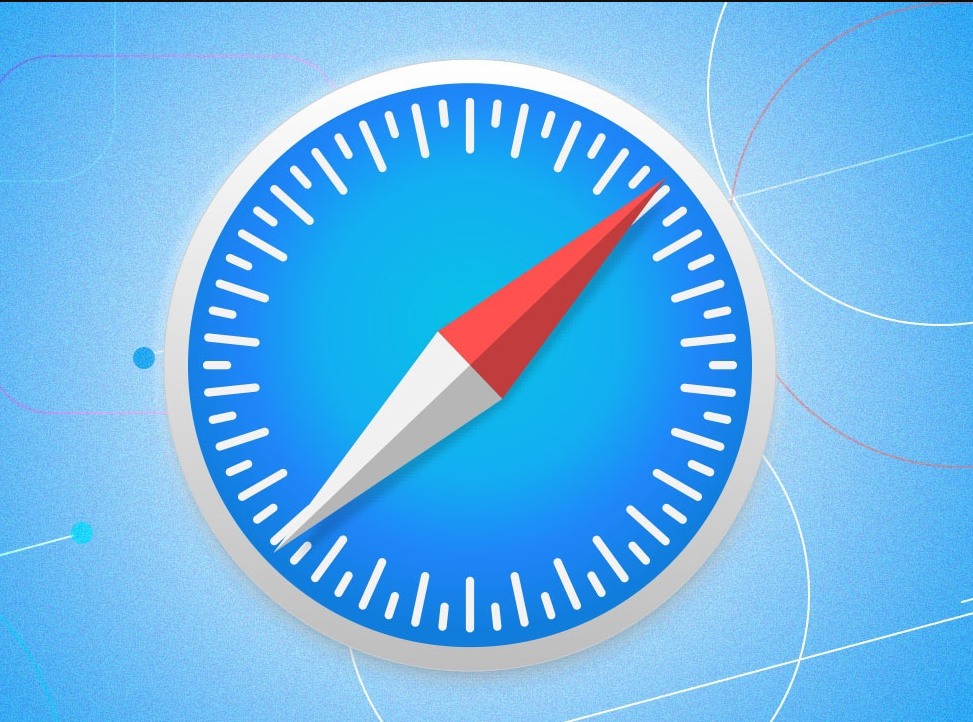Internet Anonymity
Did you know that more than 4.5 billion people are actively using the internet today? That's over half the world's population! In this bustling digital landscape, your online anonymity matters more than ever.
As you navigate through this article, you'll understand why maintaining your digital privacy is crucial in our interconnected world. You'll see the pros and cons of being anonymous online, learn how tools like VPNs and proxy servers help safeguard your identity, and explore the dark side of internet anonymity - cybercrime.
As we move towards an increasingly digitized future, it's imperative to stay informed about these issues. So buckle up - let's delve deep into the intriguing world of internet anonymity together!
Remember, knowledge is power; by understanding these concepts better, you're arming yourself with invaluable tools to protect your presence online and ensure a safer browsing experience for all.
The Concept and Importance of Digital Privacy
The concept and importance of digital privacy cannot be underestimated. Maintaining control over your personal information and online identity is crucial in today's hyper-connected world. This concept, known as 'Internet Anonymity,' is increasingly significant.
As you navigate through numerous websites and social media platforms daily, it's important to remember that every click, like, and share leaves a digital footprint. These traces can reveal more about you than you might realize, including your interests, hobbies, political views, and even your location. Many companies leverage this data for targeted advertising or worse, while cybercriminals may use it for phishing attacks or identity theft.
Therefore, maintaining digital privacy is not just an option but a necessity. It serves as a protective shield against unwanted intrusion into your personal space online. It empowers you with the choice of what to disclose and when to do so, allowing for true freedom of expression without fear.
To protect your digital identity, it is essential to remain vigilant. Utilize anonymity tools such as VPNs or anonymous browsing features. Remember, each step towards securing your online persona contributes to building a safer internet community for all of us.
The Pros and Cons of Anonymity Online
Navigating the digital world under a cloak of anonymity can be akin to wearing an invisible shield, guarding you from unwanted attention, but it also may unfurl unforeseen challenges. The advantages and drawbacks of online anonymity are multifaceted; let's probe deeper into this topic.
- Freedom of Expression: Anonymity encourages open dialogue and fosters free speech. It empowers individuals to share perspectives without fear of reprisal or judgment.
- Privacy Protection: Online anonymity acts as a defense mechanism against data breaches and identity theft, safeguarding personal information from malicious entities.
- Whistleblowing Opportunities: Anonymous platforms provide safe havens for whistleblowers to expose corruption or wrongdoings without risking their lives or careers.
However, with these benefits come potential pitfalls:
- Cyberbullying & Harassment: Anonymity can embolden individuals to engage in harmful behavior without fear of consequence.
- Misinformation Spread: Fake news and misinformation can proliferate more readily when content creators remain unidentified.
- Accountability Issues: A lack of traceability can allow illegal activities to go unpunished.
Striking the right balance between facilitating free expression and preventing abuse is key when exploring internet anonymity options. As members of this digital community, your understanding and responsible use of online anonymity will shape its future role in our society.
The Role of VPNs and Proxy Servers in Maintaining Anonymity
Ironically, in our pursuit of 'privacy', we willingly entrust our secrets to VPNs and proxy servers, the unseen guardians of our digital lives. These tools play a pivotal role in maintaining internet anonymity by rerouting your connection through an encrypted tunnel or a foreign server. This masks your identity and location, making you virtually invisible to prying eyes.
Here's how it works:
A VPN provides comprehensive protection by encrypting your entire connection. It's like having a secret path nobody can see or follow. On the other hand, a proxy server merely reroutes your web requests through another IP address. It's akin to wearing a disguise - not entirely foolproof but enough to confuse casual observers.
Remember, while these tools enhance your online privacy, they're not infallible. Be wary of free services that might sell your data for profit and always ensure proper security measures are in place. Your pursuit of online anonymity deserves nothing less than the best protection available.
Internet Anonymity and Cybercrime
Internet anonymity and cybercrime are closely intertwined. On one hand, internet anonymity provides a shield against prying eyes, but on the other hand, it also enables those with malicious intentions to hide their identity. Cybercriminals take advantage of tools like VPNs and proxy servers, which are meant to protect online privacy, to conduct illicit activities and cover their tracks. These activities can include phishing attacks, malware distribution, hacking, and large-scale data breaches. Additionally, cryptocurrencies like Bitcoin contribute to the problem by facilitating anonymous financial transactions, leading to an increase in ransomware attacks. Even browsing in incognito mode does not offer complete protection, as ISPs still keep logs of visited websites. To combat cybercrime effectively, we need robust strategies and advanced cybersecurity measures that surpass traditional methods. It is crucial to balance the right to privacy with the need to prevent cybercriminals from finding safe havens online.
The Future of Anonymity in a Digital Age
Peering into the crystal ball of our digital future, we can't help but wonder how we'll balance our thirst for privacy with the escalating need for security. The anonymity that once characterized the internet is rapidly eroding under the pressure of data-hungry corporations and surveillance-focused governments.
Consider this table to better understand where we stand and where we could be heading:
To ensure a balance between security needs and privacy rights, robust dialogue on policy reform must continue among stakeholders - governments, tech companies, and us users. We should strive to create an inclusive digital environment that respects individual privacy while maintaining necessary safeguards against misuse. Our collective future depends on it; let's not take it lightly.
Frequently Asked Questions
What are some of the best practices for maintaining internet anonymity?
To maintain your online anonymity, it's important to follow some best practices.
Start by using a Virtual Private Network (VPN) to mask your IP address. This will help protect your identity and make it harder for anyone to track your online activities.
Regularly clear cookies and browsing history to minimize the amount of data that websites can collect about you.
Embrace encryption tools for email and messaging. This will ensure that your communications are secure and not easily intercepted by unauthorized individuals.
Consider using anonymous browsers like Tor, which can help you browse the internet without revealing your true identity.
When using social media platforms, be cautious about oversharing personal information. It's best to use pseudonyms instead of real names whenever possible to protect your identity.
Disable location services on your devices, as they can reveal your physical whereabouts and compromise your anonymity.
Remember, securing your digital footprint is crucial in this tech-driven era. Taking these steps will help you maintain your online anonymity and protect your privacy.
How does internet anonymity impact social media platforms and their use?
Internet anonymity has a significant impact on the use of social media platforms. It enables users to freely express their opinions without worrying about facing personal consequences. However, this anonymity can also lead to negative behavior such as trolling and cyberbullying. Individuals who engage in such activities feel protected by the lack of real-world accountability. Additionally, anonymity may compromise the authenticity and credibility of the content shared on social media platforms.
Despite these drawbacks, internet anonymity plays a crucial role in facilitating free speech, particularly in oppressive environments where open dialogue may carry significant risks.
What are some of the legal implications or considerations regarding internet anonymity?
Legal considerations around internet anonymity are complex. You're dealing with issues like defamation, hate speech, and cybercrime, which can be harder to prosecute when the perpetrator's identity is hidden.
There's also the potential for invasion of privacy if a user's anonymity is unlawfully breached. Plus, laws shift globally making it challenging to have consistent rules.
It's crucial you understand these implications as they may affect how you navigate the digital world safely and responsibly.
Is there any way to check if my online activities are anonymous or not?
Feeling lost in the web's labyrinth? Fear not! You can verify if your online activities are anonymous or not using several methods.
Use a VPN to mask your IP address, making it tough for others to track you.
Additionally, tools like Tor ensure your data is encrypted and routed through multiple servers worldwide.
Always check if the websites you visit are HTTPS secured.
And remember, avoid sharing sensitive information online, as absolute anonymity isn't guaranteed despite these measures.
Can internet anonymity be completely guaranteed by using certain tools or software?
No tool or software can completely guarantee internet anonymity. While tools like VPNs, proxies, and Tor network can enhance your online privacy, they aren't foolproof.
Even with these protections, user errors, potential security flaws, or advanced tracking methods can expose your identity. It's crucial to stay educated about the latest threats and best practices for maintaining anonymity.
Remember, discretion in what you share also plays a significant role in preserving your online anonymity.
Conclusion
In the digital age, maintaining your online anonymity can be as challenging as nailing jelly to a wall. But remember, it's crucial for safeguarding your privacy and dodging cybercrime.
While VPNs and proxies can help, they're not foolproof. With evolving technology, the future of internet anonymity remains uncertain but infinitely important.
So keep up with changes and protect your digital footprint - it's as vital as locking your front door!













